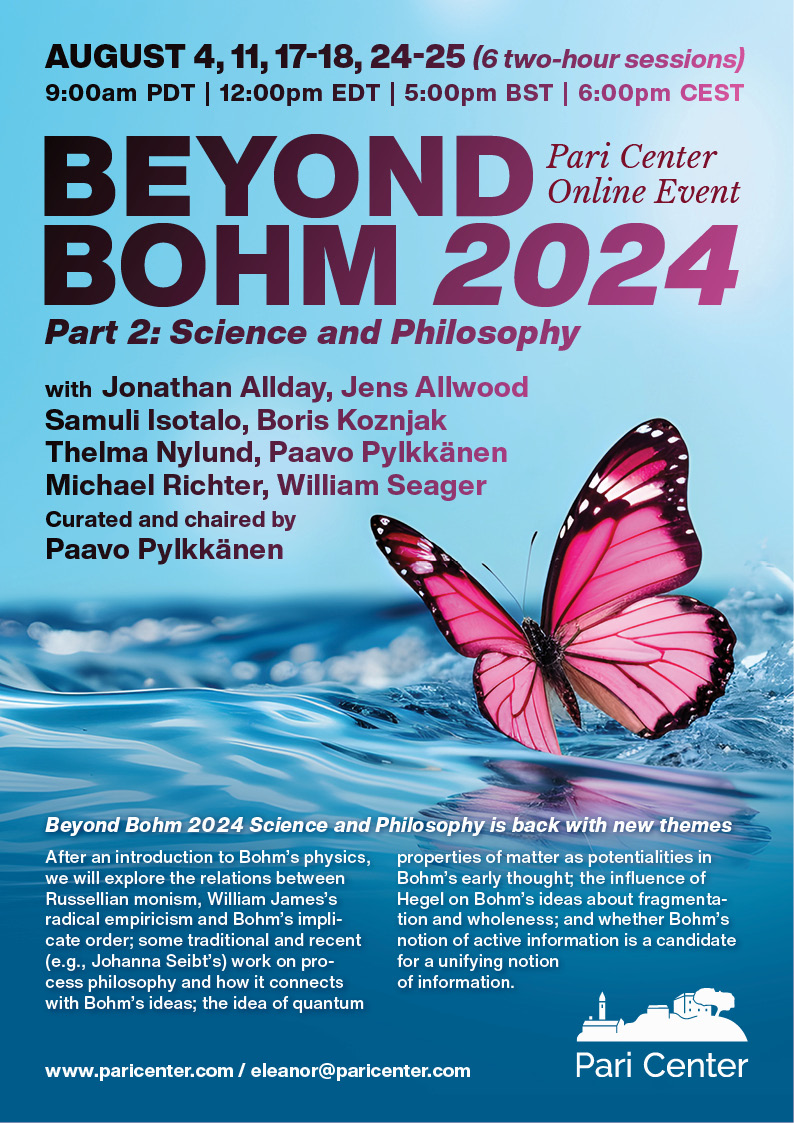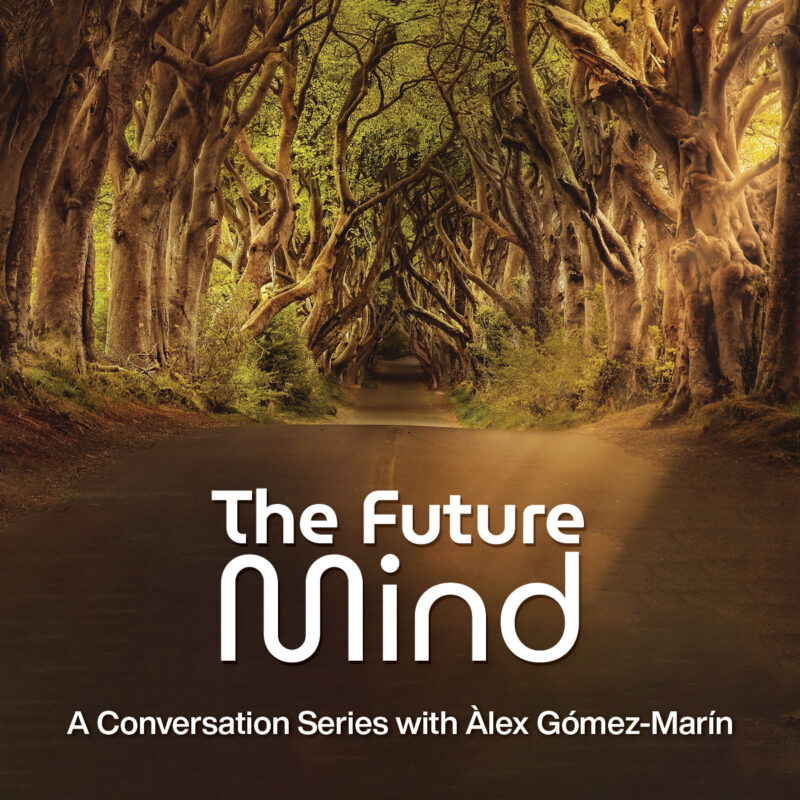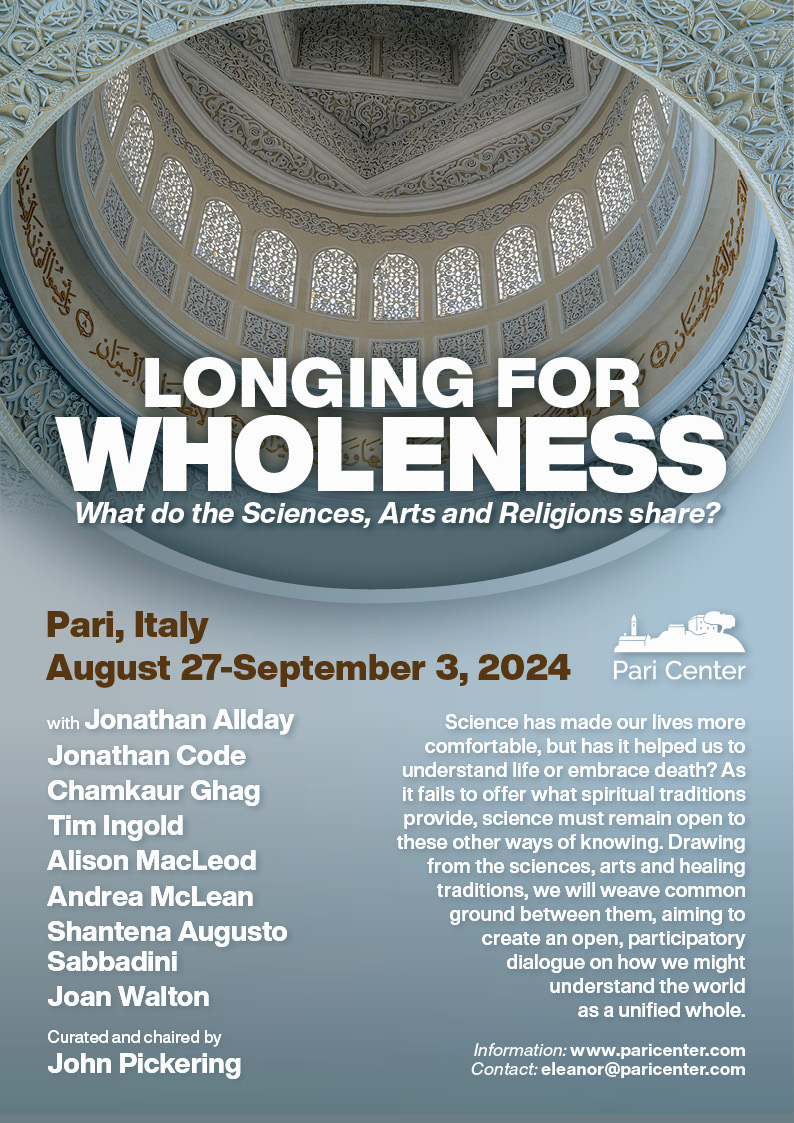Your cart is currently empty!
Beyond Bohm 2024 – Part 2
After an introduction to Bohm’s physics, we will explore the relations between Russellian monism, William James’s radical empiricism and Bohm’s implicate order; some traditional and recent (e.g., Johanna Seibt’s) work on process philosophy and how it connects with Bohm’s ideas; the idea of quantum properties of matter as potentialities in Bohm’s early thought; the influence of Hegel on Bohm’s ideas about fragmentation and wholeness; and whether Bohm’s notion of active information is a candidate for a unifying notion of information.



